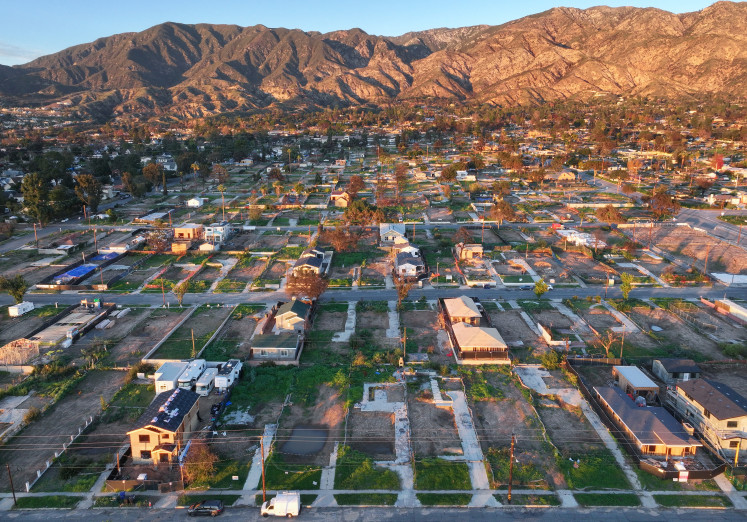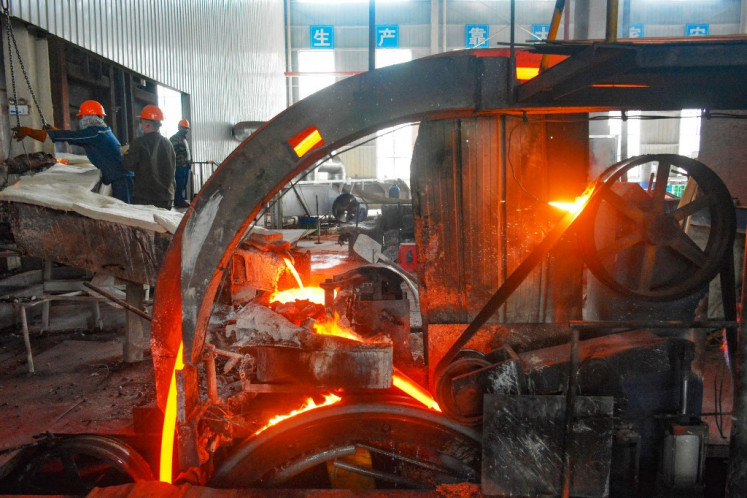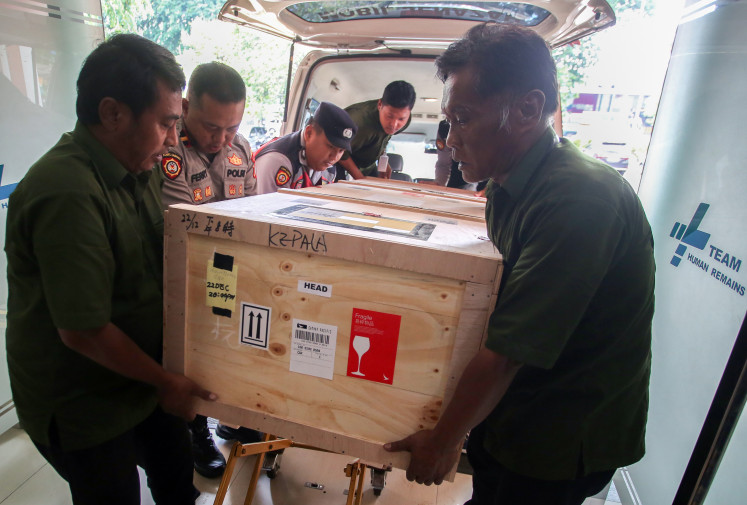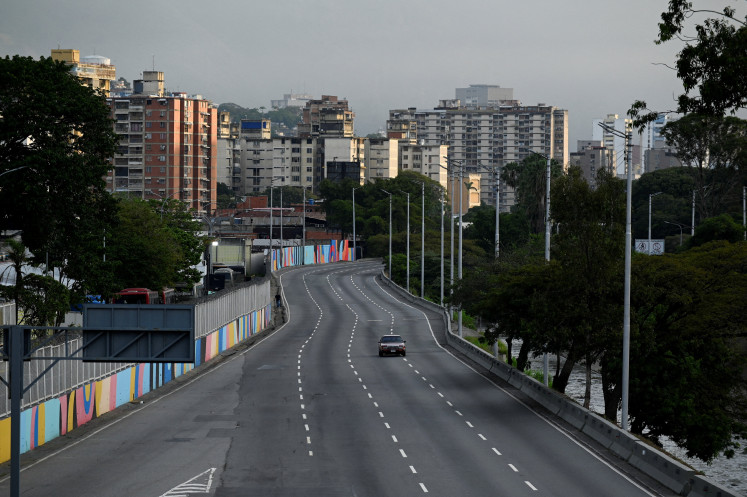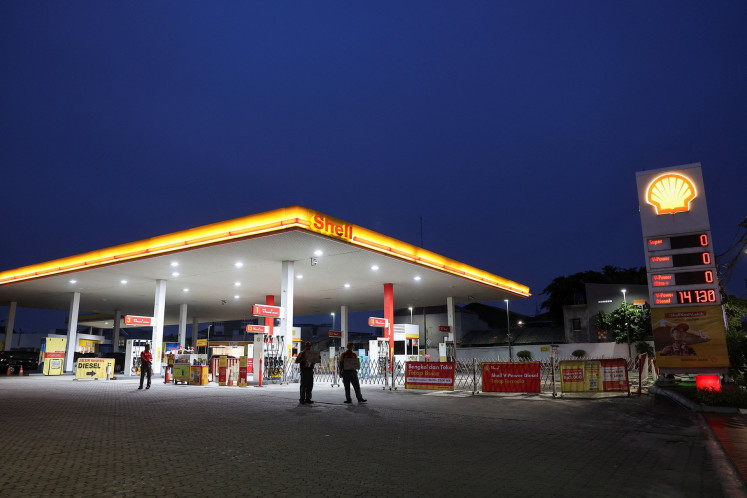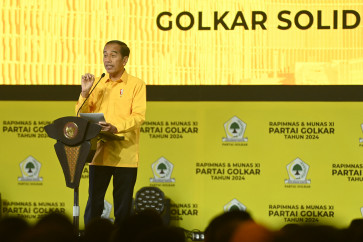Popular Reads
Top Results
Can't find what you're looking for?
View all search resultsPopular Reads
Top Results
Can't find what you're looking for?
View all search resultsJokowi to be remembered as leader who undermined democracy
Our 25-year-old democracy remains so fragile that a powerful individual like President Jokowi can undermine it.
Change text size
Gift Premium Articles
to Anyone
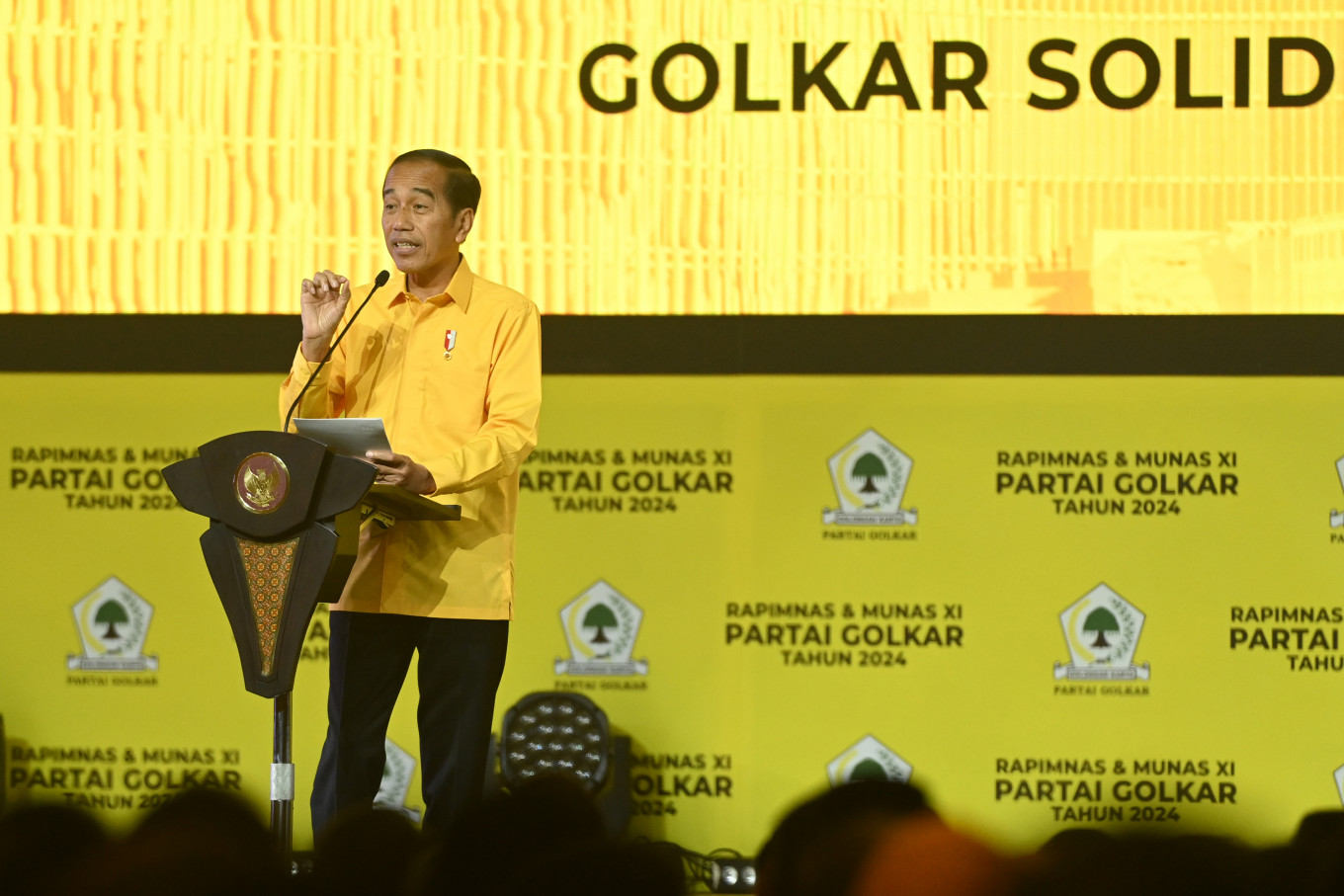 President Joko "Jokowi" Widodo delivers a speech at the closing of the XI National Conference (Munas) of the Golkar Party at the Jakarta Convention Center (JCC), Senayan, Jakarta, on Aug. 21, 2024. The Munas approved and appointed Bahlil Lahadalia as the chairman of the party for the 2024-2029 period. (Antara Foto/Muhammad Adimaja)
President Joko "Jokowi" Widodo delivers a speech at the closing of the XI National Conference (Munas) of the Golkar Party at the Jakarta Convention Center (JCC), Senayan, Jakarta, on Aug. 21, 2024. The Munas approved and appointed Bahlil Lahadalia as the chairman of the party for the 2024-2029 period. (Antara Foto/Muhammad Adimaja)
T
hursday's mass protests in cities across Indonesia succeeded in halting attempts by the House of Representatives to annul changes to the Regional Elections Law made by the Constitutional Court. The House maneuvers sparked a wave of criticism, with a blue poster featuring the words "Emergency Warning" above Indonesia's national symbol Garuda shared widely on social media.
On Tuesday the court had lowered the threshold for parties to nominate a candidate in the regional elections in November, which would clear the way for popular Anies Baswedan to run for governor in Jakarta. The court also upheld the minimum age limits, which would block President Joko “Jokowi” Widodo’s youngest son, Kaesang Pangarep, from contesting the regional head elections.
Had the House succeeded in unwinding the court rulings, it would have bolstered the political clout of outgoing President Jokowi. Nevertheless, while the mass rallies looked effective in stopping the House’s maneuvers, they cannot mask the fact that our 25-year-old democracy remains so fragile that a powerful individual like President Jokowi can undermine it.
Our democracy has, in fact, failed the test of preventing politicians from undermining democracy by way of autocratic measures. As Levitsky and Ziblatt indicate, democracy no longer ends with a bang—in a revolution or military coup—but with the slow, steady weakening of critical institutions, such as the judiciary and the legislature. Autocratic politicians, as we have lately seen, can take advantage of elections to seize power only to undercut democracy by violating the Constitution and manipulating the rules.
In 2014, Jokowi was praised as a "man of the people" and hailed as "the new face of Indonesian democracy" by Time magazine. Not long ago, he was hailed as the “father of Indonesian construction”, a nickname similar to the one once given to Soeharto as “the father of development”.
Jokowi’s singular focus on infrastructure (dams, irrigations, bridges, airports and toll roads) delivered economic growth by boosting the mobility of goods and services, which increased the competitiveness of, especially, frontier regions. The developmentalist approach rewarded Jokowi with a high approval rating and admiration.
However, Jokowi’s maneuvers in the recent election show that he has turned our politics into what political scientists Foa and Mounk call a “dirty democracy”. The term refers to competitions that consist, to a significant extent, of attempts by politicians to change the rules of the democratic game to further their political agendas. Those politicians frequently participate in "dirty politics" such as attempting to alter electoral laws, appointing partisan judges and changing important legislative processes.





